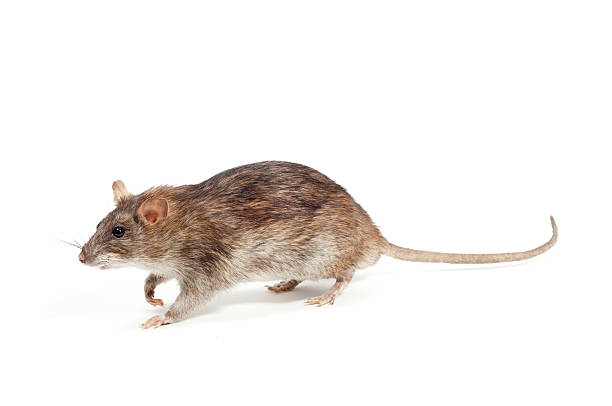If you’re trying to keep rats out of your home without relying solely on traps or poisons, you might be surprised to learn that smell plays a big role. Rats have an incredibly strong sense of smell, and certain scents are highly unpleasant to them—enough to drive them away or discourage them from returning. After a professional rat removal in Melbourne, using smell-based deterrents can add an extra layer of protection.

Why Smell Matters in Rat Prevention
Rats rely on their sense of smell for everything—from finding food and shelter to detecting threats. Their noses are far more sensitive than ours, and certain scents can overwhelm or disorient them. When they encounter an environment filled with unpleasant odours, they’re more likely to avoid it altogether.
Using natural smells as a deterrent is a non-toxic, affordable way to reinforce your rodent-proofing efforts. It’s important to note that smells alone won’t eliminate a serious infestation. However, after a professional treatment, these odours can help keep rats from coming back—potentially saving you from additional costs often associated with fluctuating rat control Melbourne prices.
Peppermint Oil – A Popular Natural Repellent
One of the most widely recommended scents for repelling rats is peppermint oil. The intense aroma is refreshing for humans but overwhelming for rodents. It disrupts their ability to sniff out food or nesting spots, making the area feel unsafe.
You can use peppermint oil by soaking cotton balls and placing them in corners, along skirting boards, inside cupboards, or near entry points. Some people also mix peppermint oil with water in a spray bottle and apply it to areas where rats have previously been active.
Be sure to refresh the scent regularly—especially in outdoor areas or during hot weather, as the smell fades quickly. While peppermint oil won’t tackle a large infestation, it’s a helpful maintenance tool after professional rat control.
Eucalyptus and Tea Tree Oil
Just like peppermint, eucalyptus and tea tree oils emit strong, sharp scents that rats dislike. These essential oils are also known for their antibacterial and antifungal properties, which add hygiene benefits while keeping pests at bay.
To use these oils, apply a few drops onto cotton pads or small cloths and leave them near potential entryways. You can rotate between different oils or combine them for greater effect. Some homeowners add a few drops to their cleaning water, allowing them to wipe down surfaces with a smell rats find repulsive.
These scents are not only effective but also align with eco-conscious households that prefer chemical-free methods. They are especially useful in gardens, garages, or sheds where rats often seek shelter.
Vinegar – A Strong but Useful Smell
While not as pleasant as essential oils, vinegar—especially white vinegar—has a strong, acrid odour that rats can’t stand. The sharpness interferes with their scent-tracking ability, making them less likely to explore vinegar-treated areas.
Create a vinegar spray by mixing equal parts white vinegar and water. Spray this solution along rat pathways, walls, under sinks, or behind appliances. Just be cautious with surfaces that may be sensitive to acidity, and avoid overuse in living areas where the smell might be overwhelming for humans too.
Though inexpensive and easy to find, vinegar needs frequent reapplication to stay effective. It’s best used in conjunction with other deterrents for a layered approach to post-treatment rat removal.
Ammonia – A Scent That Mimics Predators
Rats associate the smell of ammonia with the presence of predators, particularly urine from cats. Because of this, it can serve as a powerful repellent. However, its use must be handled with care due to its strong fumes and potential health hazards.
To apply ammonia safely, mix it with water and soak it into rags. Place these rags in sealed containers with holes (like plastic takeaway tubs) and set them in places rats frequent—this way, the scent is released without risking spillage or skin contact.
Due to its intensity, avoid using ammonia in bedrooms or areas with poor ventilation. While highly effective in small amounts, ammonia should always be handled with gloves and stored safely out of reach of children and pets.
Predator Scents and Other Natural Deterrents
Beyond strong household smells, rats are also deterred by the scent of their natural predators. Products made with synthetic fox or cat urine are available in some hardware or garden stores. These create the illusion of danger, making rats think twice before entering your space.
Additionally, used cat litter (sealed in containers like ammonia-soaked rags) can serve a similar purpose. Just make sure it’s not exposed in ways that might create a hygiene issue or offend house guests.
Spices like chilli powder, cloves, and cayenne pepper are also said to repel rats due to their strong aromas and irritant properties. These can be sprinkled around entry points, although they may need frequent renewal—especially in windy or wet conditions.
Final Thoughts on Scent-Based Rat Deterrents
Using smells that rats hate can be a smart, low-cost addition to your long-term pest control strategy. However, it’s important to remember that these are deterrents—not solutions for an existing infestation. If you’re dealing with a rat problem, professional removal is always the first step.
Once the treatment is done, adding scent-based barriers around your home can help prevent a repeat. These natural methods work best when combined with good hygiene, food storage, and physical sealing of entry points.
Keep Rats Away with a Lasting Plan
Keeping your home rodent-free takes more than a one-time fix. After treatment, incorporating scent-based deterrents can help discourage rats from returning and support your long-term pest prevention plan.
If you’re dealing with a current infestation or want professional advice on what to do next, call Rats Removal Melbourne on 03 8592 4758. In addition to rat removal, they offer expert solutions in rodent control, mice removal, and more. Let their team help you create a safer, cleaner, and rat-free space—starting today.
